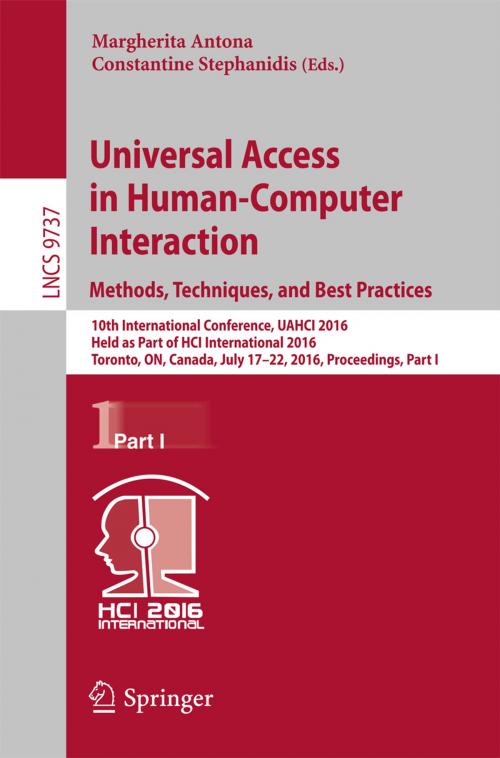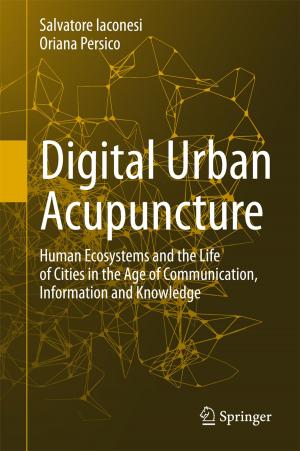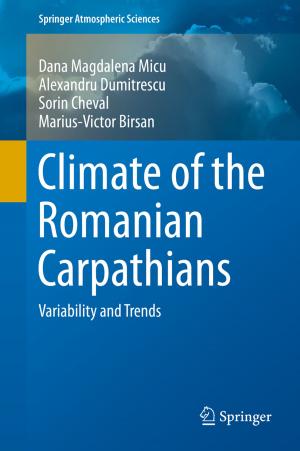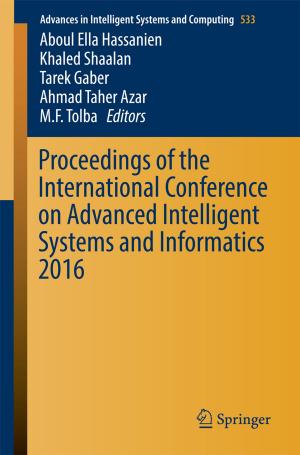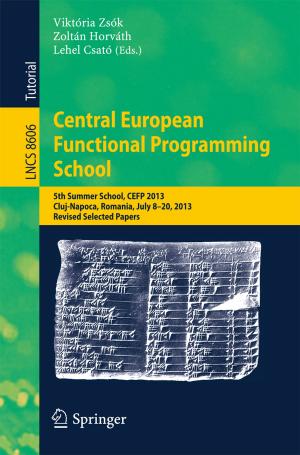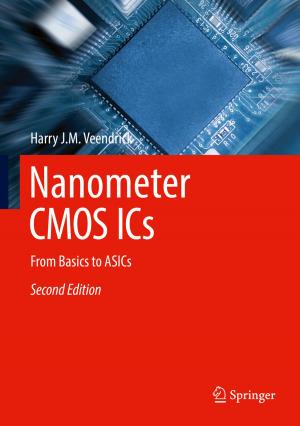Universal Access in Human-Computer Interaction. Methods, Techniques, and Best Practices
10th International Conference, UAHCI 2016, Held as Part of HCI International 2016, Toronto, ON, Canada, July 17-22, 2016, Proceedings, Part I
Nonfiction, Computers, Advanced Computing, Programming, User Interfaces, General Computing| Author: | ISBN: | 9783319402505 | |
| Publisher: | Springer International Publishing | Publication: | July 4, 2016 |
| Imprint: | Springer | Language: | English |
| Author: | |
| ISBN: | 9783319402505 |
| Publisher: | Springer International Publishing |
| Publication: | July 4, 2016 |
| Imprint: | Springer |
| Language: | English |
The three-volume set LNCS 9737-9739 constitutes the refereed proceedings of the
10th International Conference on Universal Access in Human-Computer Interaction, UAHCI 2016, held as part of the 10th International Conference on Human-Computer
Interaction, HCII 2016, in Toronto, ON, Canada in July 2016, jointly with 15
other thematically similar conferences. The total of 1287 papers presented at the HCII 2016 conferences were carefully reviewed and selected from 4354 submissions. The papers included in the three UAHCI 2016 volumes address the following major topics: novel approaches to accessibility; design for all and eInclusion best practices; universal access in architecture and product design; personal and collective informatics in universal access; eye-tracking in universal access; multimodal and natural interaction for universal access; universal access to mobile interaction; virtual reality, 3D and universal access; intelligent and assistive environments; universal access to education and learning; technologies for ASD and cognitive disabilities; design for healthy aging and rehabilitation; universal access to media and games; and universal access to mobility and automotive.
The three-volume set LNCS 9737-9739 constitutes the refereed proceedings of the
10th International Conference on Universal Access in Human-Computer Interaction, UAHCI 2016, held as part of the 10th International Conference on Human-Computer
Interaction, HCII 2016, in Toronto, ON, Canada in July 2016, jointly with 15
other thematically similar conferences. The total of 1287 papers presented at the HCII 2016 conferences were carefully reviewed and selected from 4354 submissions. The papers included in the three UAHCI 2016 volumes address the following major topics: novel approaches to accessibility; design for all and eInclusion best practices; universal access in architecture and product design; personal and collective informatics in universal access; eye-tracking in universal access; multimodal and natural interaction for universal access; universal access to mobile interaction; virtual reality, 3D and universal access; intelligent and assistive environments; universal access to education and learning; technologies for ASD and cognitive disabilities; design for healthy aging and rehabilitation; universal access to media and games; and universal access to mobility and automotive.
